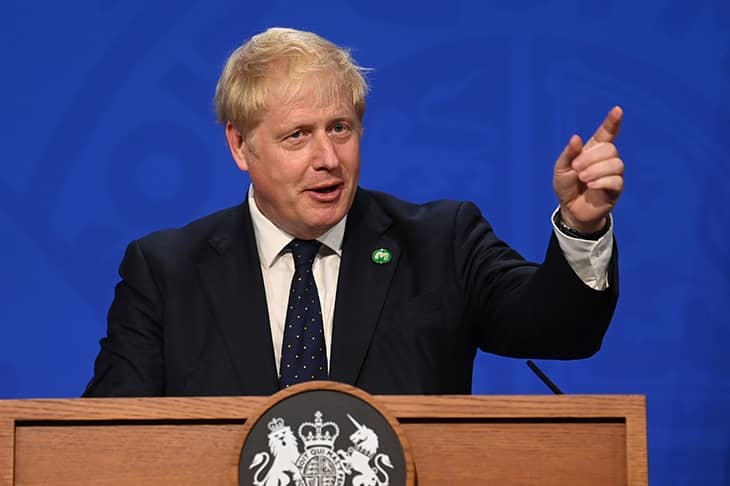For 18 months, the government has held power over us as never before in peacetime. The emergency powers granted by parliament in March last year can cancel our events, separate families and send us back into our homes. The argument for giving politicians this kind of control was that leaders needed to make huge decisions at short notice because an invisible enemy was surging through Britain and posed a deadly threat to our elderly and vulnerable. There was no time for proper democratic debate or scrutiny.
That emergency has passed, but the government wishes to keep the powers. What’s the case for doing so? Vaccines have significantly weakened the link between Covid infections and severe illness. Hospital occupancy remains on track with or even below the most optimistic Sage scenarios. In these circumstances, the government should need a very good reason if it is to be allowed to extend these powers, which would pave the way for more school closures, restrictions and even further lockdowns.
Have scientific advisers told ministers something they have not shared with the rest of us, perhaps about a new variant or about the fading efficacy of vaccines? Or is it simply that the government has grown used to pushing things through without debate in the cabinet, let alone parliament?
It is dangerous to give politicians a taste of power without the usual democratic restraints
The vaccines minister Nadhim Zahawi warned this week that he couldn’t rule out further Covid restrictions, such as closing schools for a two-week half-term ‘firebreak’ — though he added that it would be the ‘worst thing we can do for the economy and people’s livelihoods’. What he didn’t do was explain what exactly would make such a step necessary. The point of democratic scrutiny is to force governments to make their case. It improves the quality of decision-making and reduces the risk of unintended consequences.
If vaccine immunity is waning, Britain has the option of offering booster jabs, which could be adjusted to cope with new strains of the virus — something Simon Clarke advocates in his article. These booster vaccines are available now — the government specifically ordered 60 million Pfizer jabs. So why should there be any need to reintroduce the blunt and harmful instruments of lockdowns and other restrictions? If it ever does become necessary to restrict our freedoms once again, the government will always have the option of returning to parliament to ask for specific emergency powers.
It took only a couple of days to pass the required bill in March 2020. But to retain such a heavy-handed piece of legislation on the statute book ‘just in case’ would be a grievous move which tramples on our freedoms with little justification.
There is a risk that the government is taking poor decisions because the chaotic modus operandi in 10 Downing Street is not being balanced by normal checks and procedures. At every turn, the instinct is to spend money: even the £12 billion tax rise intended for care homes might end up disappearing into the ever–growing NHS budget. When Tony Blair imposed his National Insurance plan, he commissioned the Wanless Review to look in detail at how the money was spent. Johnson has implemented a larger tax rise without producing even a one-page summary of how the money will improve care homes.
For a year and a half now, senior individuals in Whitehall have been able to enact far-reaching measures without the bother of having to persuade the House of Commons of their merits. It may feel fast and efficient, but it is dangerous to give politicians a taste of power without the usual democratic restraints. If the Coronavirus Act is extended until March next year, no one should take it for granted that the powers will be relinquished then. If we are to accept new levels of government control, we should at least have a debate about it.
The democratic deficit is all the greater because the Labour party has imploded and is a danger only to itself. Sir Keir Starmer seems to struggle so much with leading his party that he cannot cope with the strain of opposing the government. He frequently abstains instead. He voted to approve the latest extension of emergency powers, as if it would be a relief to take a longer break from parliamentary duty. A proper opposition leader should welcome the clash of ideas and the opportunity to expose weakness in government plans.
Meanwhile, the British economy continues to be neglected. The rebound from the depths of spring 2020 has been strong at times, but the recovery looks fragile. The health of many businesses depends on the threat of lockdowns being withdrawn. Renewing emergency powers at this point would signal that the government has lost faith in vaccines and that the after-effects of the pandemic will be allowed to drag on indefinitely. Allowing the powers to lapse, on the other hand, would show confidence.
As the Chancellor once said, this should be a time to ‘live without fear’. Emergency powers might be needed in future to deal with new crises, but they should not be baked into our constitution.






Comments